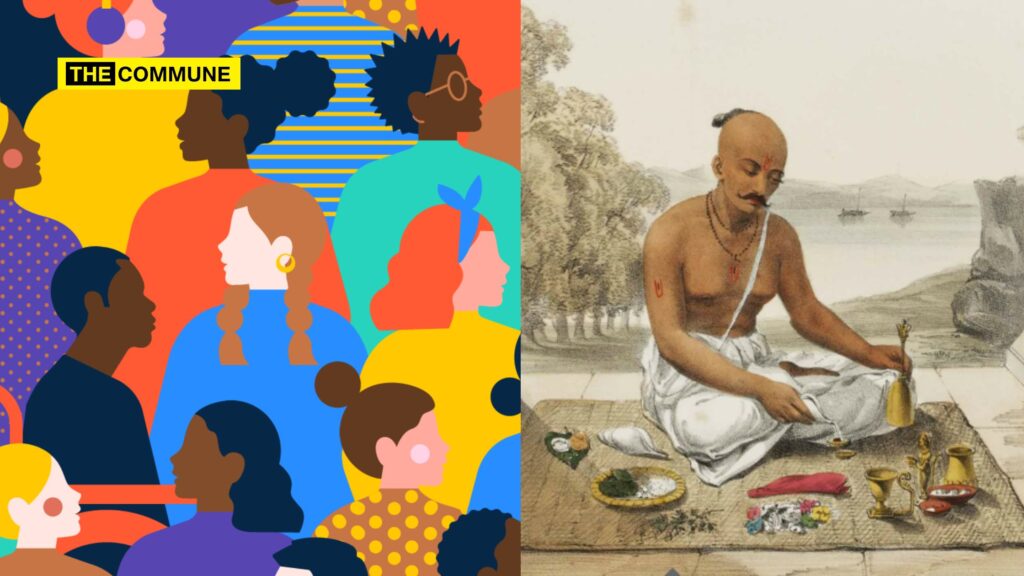A new study by the Network Contagion Research Institute raises alarms about the impact of Diversity, Equity, and Inclusion (DEI) programs, suggesting that caste-based materials may inadvertently fuel division and prejudice against the Brahmin community. By substituting “Brahmin” into anti-Semitic rhetoric from Adolf Hitler’s Mein Kampf, the research highlights a troubling trend in DEI content that could reinforce identity-based biases and punitive attitudes, raising serious questions about the effectiveness of these interventions in promoting inclusivity.
The study, which tested widely used DEI materials, reveals troubling findings about the potential of such interventions to exacerbate identity-based divisions and reinforce punitive attitudes.
The research focused on three prominent DEI themes: anti-racism, anti-Islamophobia, and anti-caste bigotry. Drawing from influential works by figures such as Ibram X. Kendi and Robin DiAngelo, as well as material from organizations like Equality Labs, the study examined how exposure to DEI narratives shaped participants’ beliefs and attitudes.
One of the study’s most startling findings emerged from its investigation into caste-related DEI content. Researchers substituted the term “Brahmin” into quotes from Adolf Hitler’s Mein Kampf, such as “Brahmins are parasites” and “Brahmins are the devil personified.” Participants exposed to these materials demonstrated higher levels of agreement with these statements than those in the control group. This raises serious concerns about the potential for caste-based DEI narratives to fuel prejudice against Brahmins under the guise of combating caste oppression.
DEI And The Perception Of Bias
Across all three themes, participants exposed to DEI rhetoric were more likely to perceive bias in situations where none was empirically present. For instance, in a hypothetical college admissions rejection scenario, those who had read anti-racist materials were 21% more likely to attribute racial bias to the admissions officer, even in the absence of evidence or any mention of race.
Participants exposed to DEI content were also significantly more inclined to endorse punitive measures, including suspension, public apologies, and additional DEI training for the imagined wrongdoers in these scenarios. This dynamic, the researchers argue, creates a self-perpetuating cycle where perceived bias leads to further DEI interventions, regardless of whether discrimination occurred.
The study highlights a lack of critical evaluation and accountability within the DEI industry, which generates an estimated $8 billion annually. Researchers pointed out that many training materials are proprietary and shielded from public scrutiny, making it difficult to assess their content and effectiveness.
Ibram X. Kendi, a prominent DEI advocate, criticized the study when approached for comment, alleging misrepresentation and dismissing it as “pseudoscience.” However, the researchers maintain that they quoted his work verbatim and note that Kendi has not conducted any peer-reviewed studies to substantiate the efficacy of his methods.
The findings suggest that DEI programs, particularly those rooted in anti-oppression rhetoric, may inadvertently foster division, resentment, and hypervigilance. The researchers argue that framing individuals and groups as “oppressed” and “oppressors” risks amplifying biases rather than reducing them.
The study also raises concerns about the bureaucratic nature of DEI initiatives, which often prioritize compliance and reputation management over genuine commitment to equality and inclusion. This, the researchers contend, incentivizes performative actions and undermines the potential for substantive progress.
The paper concludes with a call for a shift away from the current ideological DEI paradigm toward evidence-based practices. The authors advocate for transparency, rigorous evaluation, and a focus on fostering pluralism and mutual respect.
While the promise of DEI programs lies in rejecting discrimination and promoting social cohesion, the study warns that the prevailing approach may be counterproductive. The researchers emphasize the importance of designing interventions that celebrate shared humanity and encourage open dialogue to achieve the goals of inclusivity and equity.
Subscribe to our channels on Telegram, WhatsApp, and Instagram and get the best stories of the day delivered to you personally.

